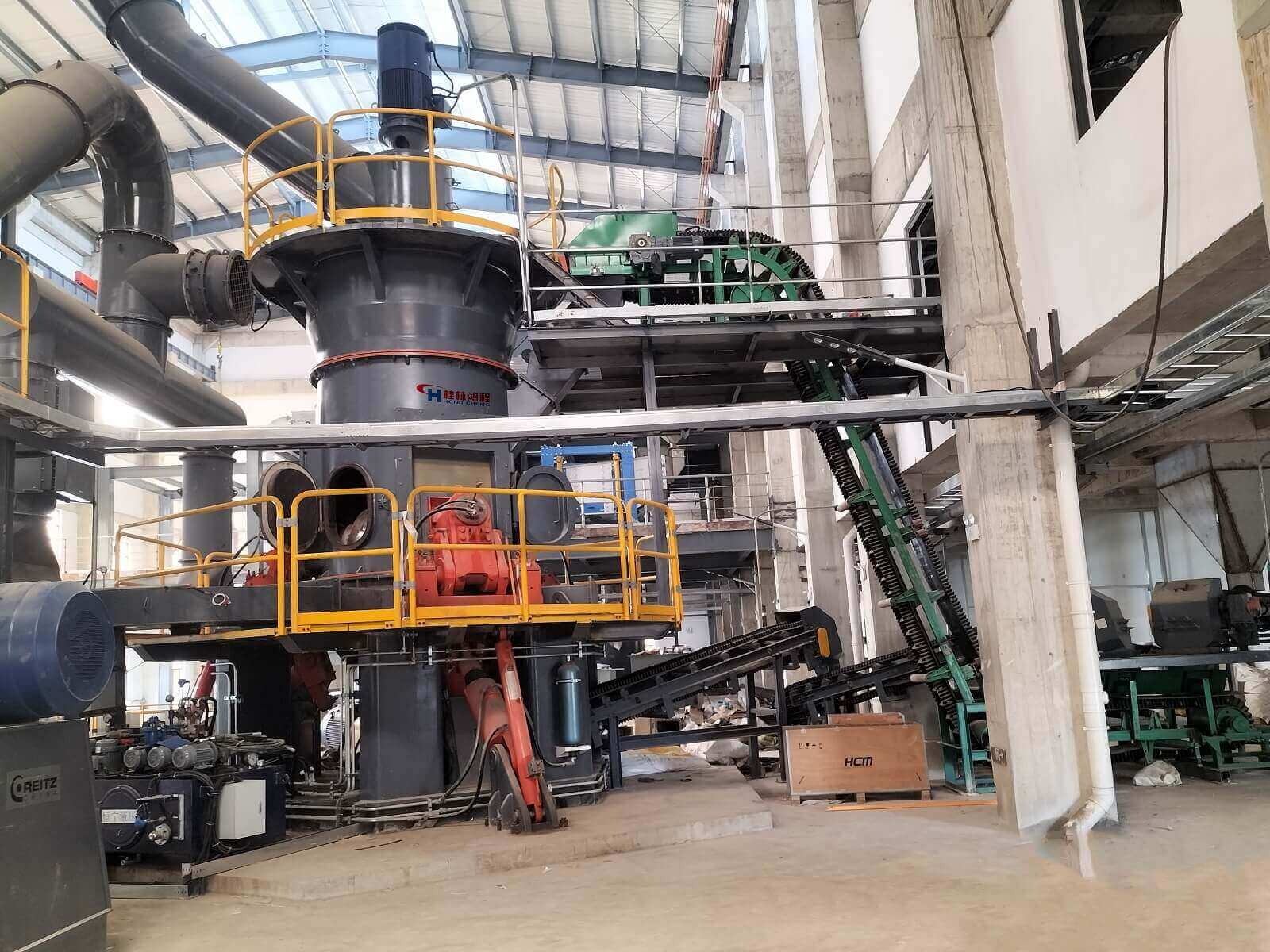The effect of glass powder on cement is mainly reflected in active silica, because the main component of glass is active silica. After being ground into powder, it can have pozzolanic activity and can be used as an admixture to prepare concrete. This can not only solve the problem of disposal of waste glass, but also promote the development of green and environmentally friendly building materials. Guilin Hongcheng is a vertical grinding mill manufacturer. The grinding mill we produce is equipment used to grind waste glass powder. Today we will introduce to you the effect of glass powder on cement.

Glass Powder Vertical Grinding Mill, welcome to leave a message or consult [email protected]
By analyzing the compressive strength test of concrete mixed with glass powder and the microscopic examination results of cement paste, it can be concluded that although the CaO of glass powder can react with water, it is very weak, so it can be considered that glass powder does not have hydraulic hardness.
When the blending amount of glass powder is 10%, for example, the active silica, alumina and calcium hydroxide in the glass powder react to form low-alkalinity hydrated calcium silicate, and its active silica can also react with high-alkalinity The calcium silicate hydrate reacts to generate low-alkali calcium silicate hydrate, which reduces the calcium hydroxide content and generates a part of calcium silicate hydrate, which improves the density and impermeability of the hardened slurry; it It reacts with the cement hydration product calcium hydroxide (Ca(OH)2) to form hydrated calcium silicate, which reduces the content of Ca(OH)2 in concrete, increases the content of hydrated calcium silicate, and improves the strength of concrete.
When the glass powder content reaches 20%, because the cement content decreases, the hydrates generated by cement hydration also decrease. However, the reaction between glass powder and cement hydrates generates partially hydrated calcium silicate, and the reduction in the amount of hydrates is compensated. .Therefore, when the content of glass powder reaches 20%, the strength is still equivalent to that of the benchmark concrete. When the content of glass powder continues to increase and the cement content gradually decreases, the amount of hydration products becomes smaller and smaller, and the difference between glass powder and cement The hydrate increased by the hydrate reaction is not enough to make up for the decrease in hydration products caused by the decrease in cement content, so the strength is getting lower and lower. It was also found that when the amount of glass powder is too much, it will Cracks appear. This is because when the amount of cement is reduced, the demand for active silica participating in the hydration reaction is also reduced. The remaining active silica reacts with the alkaline substances in the glass powder to cause alkali aggregate reaction, resulting in As the concrete expands internally, the hardened cement paste will crack and produce larger cracks, and the strength of the concrete will also decrease.
(1) The 28-day compressive strength of concrete prepared with colorless transparent glass powder and green glass powder mixed with 10% and 15% of cement instead of cement is higher than that of the benchmark concrete; when the dosage is 20%, the strength is the same as that of the benchmark concrete. Comparable to concrete; when the dosage is 30% and above, the compressive strength of concrete decreases a lot.
(2) When glass powder is not added, calcium hydroxide crystallizes well and is larger in size. As the amount of glass powder increases, the content of calcium hydroxide gradually decreases and the crystallization becomes worse and worse.
(3) Adding glass powder of different colors does not have a great impact on the strength of concrete.
(4) Glass powder is used to prepare concrete and has great ecological effects.
Glass powder replaces cement, which can save 19,300 kW of electricity and 800 tons of standard coal per 10,000 tons, and emit less CO211,100 tons, SO27.8 tons, and NOx15.1 tons into the air every year. Waste glass produced by Guilin Hongcheng The vertical grinding mill is equipment for producing glass powder. It can process 80-600 pieces of waste glass powder to meet the processing needs of glass powder cement substrate. If you have relevant needs, please leave us a message for details.